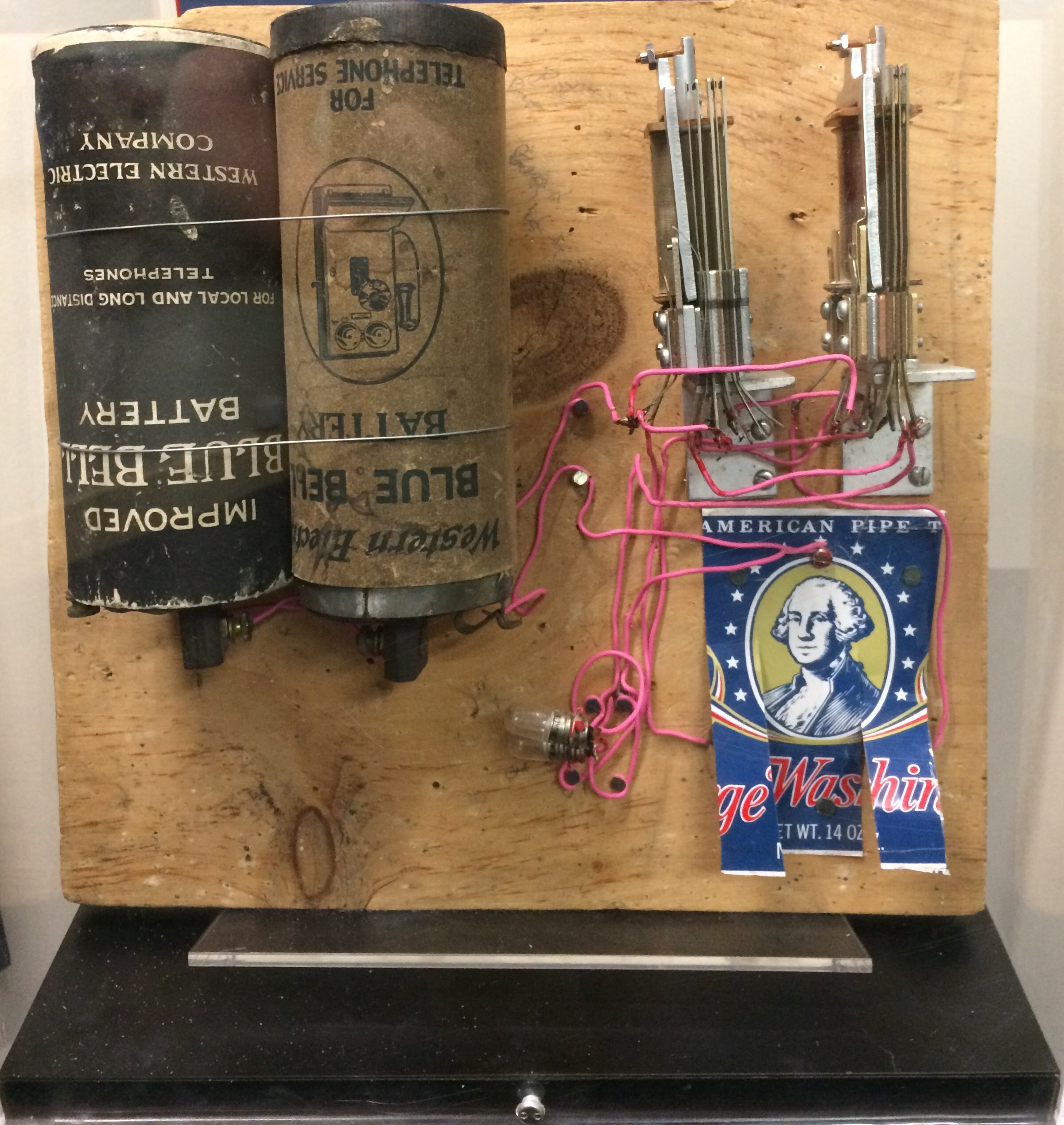Q2K
I’m building a quantum computer. Not just for me, but for everyone. Modeled after the microcomputer revolution (which took the power of classsical computers from a few large corporations and universities and put it in the hands of everyone), the goal of Q2K is to ensure that the power or quantum computing is available to anyone, not just the richest companies, governments or universities. I’ve been interested in quantum computing for a long time, but it wasn’t until I saw the binary computer George Stibitz built on his kitchen table that I saw a path toward creating one.  This rudimentary device kicked-off digital computer development at AT&T and started the ball rolling toward the computers we have today. I know that building a complete, useful quantum computer is a daunting task, but seeing this device made me wonder if I could create the quantum equivalent? If so, it could be the catalyst for a more sophisticated quantum computer that could be developed outside of existing corporate or academic environments where most work on quantum computing currently takes place. This thought led to the Q2K project. Simply put, I want to develop an open-source quantum computer with at least 2,000 qbits capacity at a costs of less than $2,000.00 US. The reason for this is to gradually raise awareness of quantum computing and place its power into a larger and more diverse number of hands. Instead of creating a small number of powerful but purpose-specific quantum computers, I want to create a basic design which is inexpensive enough to be accessible to individuals or small organizations. One that is open and flexible enough for a range of applications that have not even been imagined yet. The Q2K project defines a dynamic number of milestones toward accomplishing the goal of making quantum computing available to everyone:
This rudimentary device kicked-off digital computer development at AT&T and started the ball rolling toward the computers we have today. I know that building a complete, useful quantum computer is a daunting task, but seeing this device made me wonder if I could create the quantum equivalent? If so, it could be the catalyst for a more sophisticated quantum computer that could be developed outside of existing corporate or academic environments where most work on quantum computing currently takes place. This thought led to the Q2K project. Simply put, I want to develop an open-source quantum computer with at least 2,000 qbits capacity at a costs of less than $2,000.00 US. The reason for this is to gradually raise awareness of quantum computing and place its power into a larger and more diverse number of hands. Instead of creating a small number of powerful but purpose-specific quantum computers, I want to create a basic design which is inexpensive enough to be accessible to individuals or small organizations. One that is open and flexible enough for a range of applications that have not even been imagined yet. The Q2K project defines a dynamic number of milestones toward accomplishing the goal of making quantum computing available to everyone:
- Cobble together a functional qbit by any means necessary
- Select a single useful application of quantum computing to demonstrate the utility of a quantum computer
- Build enough qbits to assemble a quantum computer capable of executing the application selected in step 2
- Refine and improve the process and materials used to build qbits as necessary to complete step 3
- Select additional quantum computing applications which can be executed on the assembled computer
- Design both a guide and kit that others can use to build the computer and execute these applications
- Release the above as open source
- Use the kit described above to generate revenue for the next phase of development, as well as to begin seeding the world with quantum computer developers and hobbyists
- Use everything learned above, along with community support, to iterate toward a complete Q2K design This plan deliberately follows an evolutionary path set by the microcomputer. By releasing the embryonic quantum device as a kit, a community of curious and dedicated hobbyists can begin to form. This same community can then begin to explore quantum computing and dream of new applications in parallel with development of the final Q2K machine. By inviting this community to collaborate on each iteration, there is a greater chance or producing a useful general-purpose device. This is likely to help build a dedicated fan base and create excitement leading up to the release of the completed machine. Q2K is the latest of my personal “grand challenges”, and as such it is expected to consume the majority of my hacking resources. That means that some or all of my other projects may slow down or get mothballed until Q2K is complete (or at least until each milestone is reached). Like previous grand challenges, I have framed the schedule around my own age. My next birthday (02/16/2018) has been selected as the deadline of achieving the milestone of creating a working qbit. My 50th birthday (02/16/2024) has been selected as the target for completing the entire project. Additional deadlines will be selected as each step of the project has been completed. Quantum computing is to computing what nuclear weapons are to warfare. In a world where computing power is increasingly more useful than military might, the nations/companies/etc. who possess quantum computers will hold threats and advantages over those who do not. I believe that allowing such power to concentrate in the hands of a single or small number of entities is not in the best interest of humanity.
